8 Indoor Plants That Keep Bugs Away, According to Experts
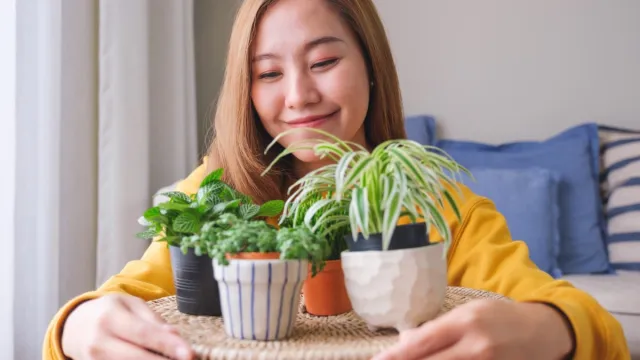
Bringing plants into your home can be a great way to beautify your space, enhance the quality of your air, and even promote better health and mental well-being. But experts say that more benefits abound—especially if you happen to have a problem with pests. Though some plants are known to attract insects, others can actually help keep bugs away. Read on to learn which eight indoor plants are considered effective bug repellents—so you can enjoy your home without the uninvited guests.
READ THIS NEXT: 5 Plants That Will Keep Mosquitoes Out of Your Yard, According to Pest Experts.
8 Indoor Plants That Repel Bugs
1. Lavender
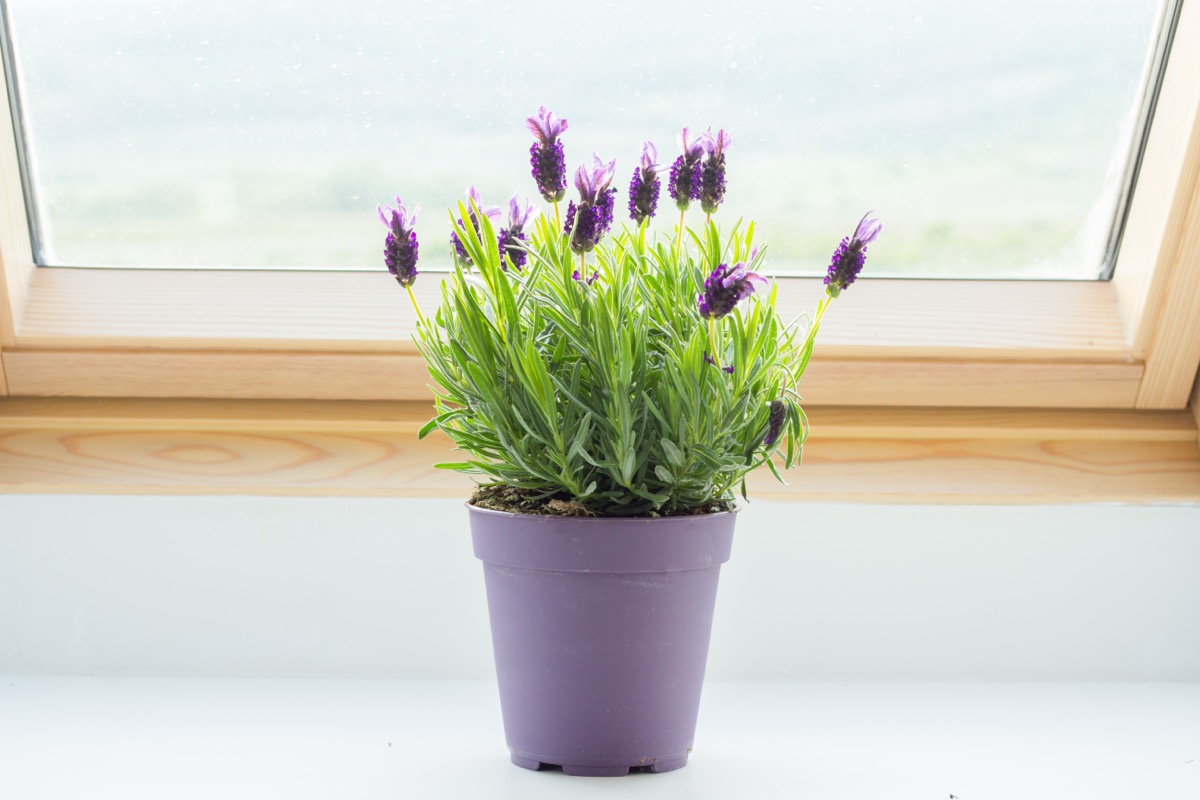
Planting fragrant herbs is a great way to ward off bugs, says Zahid Adnan, founder of The Plant Bible. In particular, he recommends lavender, noting that many people enjoy its soothing fragrance.
However, bugs find the scent less appealing, Adnan says. “The strong scent of lavender repels mosquitoes, moths, and flies,” he tells Best Life.
He notes that since lavender requires plenty of sunlight and well-draining soil, it’s an ideal potted plant choice for sunny, indoor spaces. Try planting it on a windowsill to discourage bugs from coming inside.
2. Basil
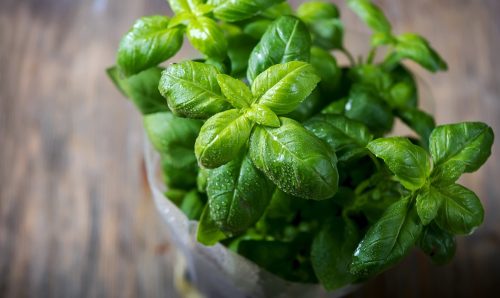
Basil is another great indoor herb for repelling bugs, says Adnan—and it also makes a nice addition to the kitchen for any home chef. “Its strong aroma deters flies, mosquitoes, and houseflies,” Adnan notes.
The plant expert says that basil prefers bright light and moderate watering. He recommends harvesting your basil regularly to encourage growth and maintain its bug-repellent properties.
Brock Ingham, owner and editor of Bigger Garden, adds that the best time to prune your basil plants is as they begin to flower.
READ THIS NEXT: 8 Plants That Will Keep Snakes Out of Your Yard, According to Pest Experts.
3. Rosemary
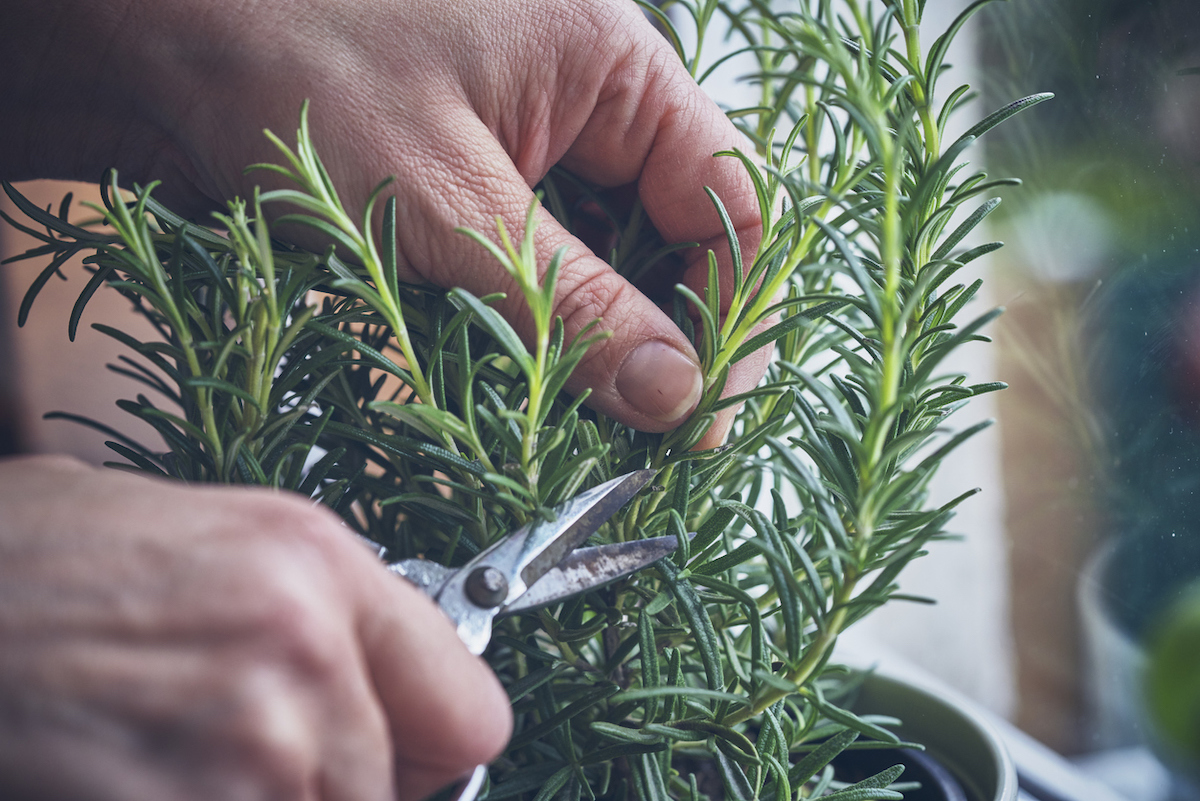
Rosemary is another fragrant herb that repels a variety of insects, says Adnan. “Its needle-like leaves produce an aromatic scent that bugs find unappealing.”
Ingham notes that the scent can deter mosquitoes, flies, and moths. “Place potted rosemary near windows or in areas where you spend a lot of time indoors. Some varieties are ornamental with bright pink flowers if you’re not much of a cook,” he adds.
4. Peppermint

Peppermint, with its refreshing scent, is an effective deterrent against spiders, ants, and mosquitoes, says Adnan. He explains that the strong aroma of peppermint or peppermint oil can mask the pheromones that attract insects to one another, which can help disrupt an infestation.
He also says that peppermint is a great choice for beginner plant parents. “It is a low-maintenance plant that can thrive in both bright and partially shaded areas,” he says, but notes that it requires moist soil to thrive.
For more home tips sent directly to your inbox, sign up for our daily newsletter.
5. Lemongrass or lemon balm
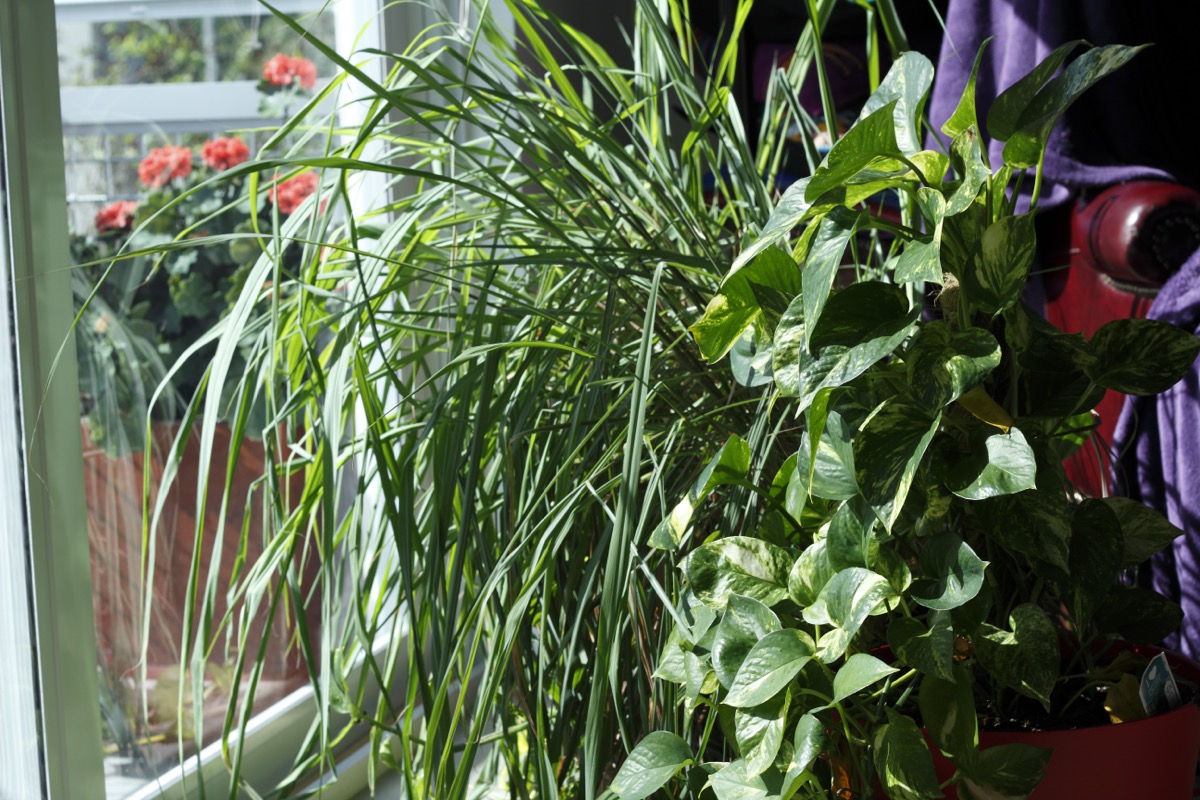
With a bright, citrusy scent, lemongrass and lemon balm are also effective in keeping bugs away.
“Lemongrass contains citronella oil, which is commonly used in insect repellents,” explains Adnan. “It naturally repels mosquitoes, making it a useful addition to indoor spaces.”
Adnan notes that lemongrass thrives in bright locations with regular watering. “It’s important to note that lemongrass can grow quite tall, so consider providing ample space for its growth,” he advises.
“This herb can be grown in pots or planted in a garden near seating areas or open windows to deter these annoying pests,” adds Gene Caballero, co-founder of GreenPal. “In addition to its bug-repelling properties, lemon balm is also known for its calming effects, making it a great addition to relaxation spaces in the home.”
6. Catnip
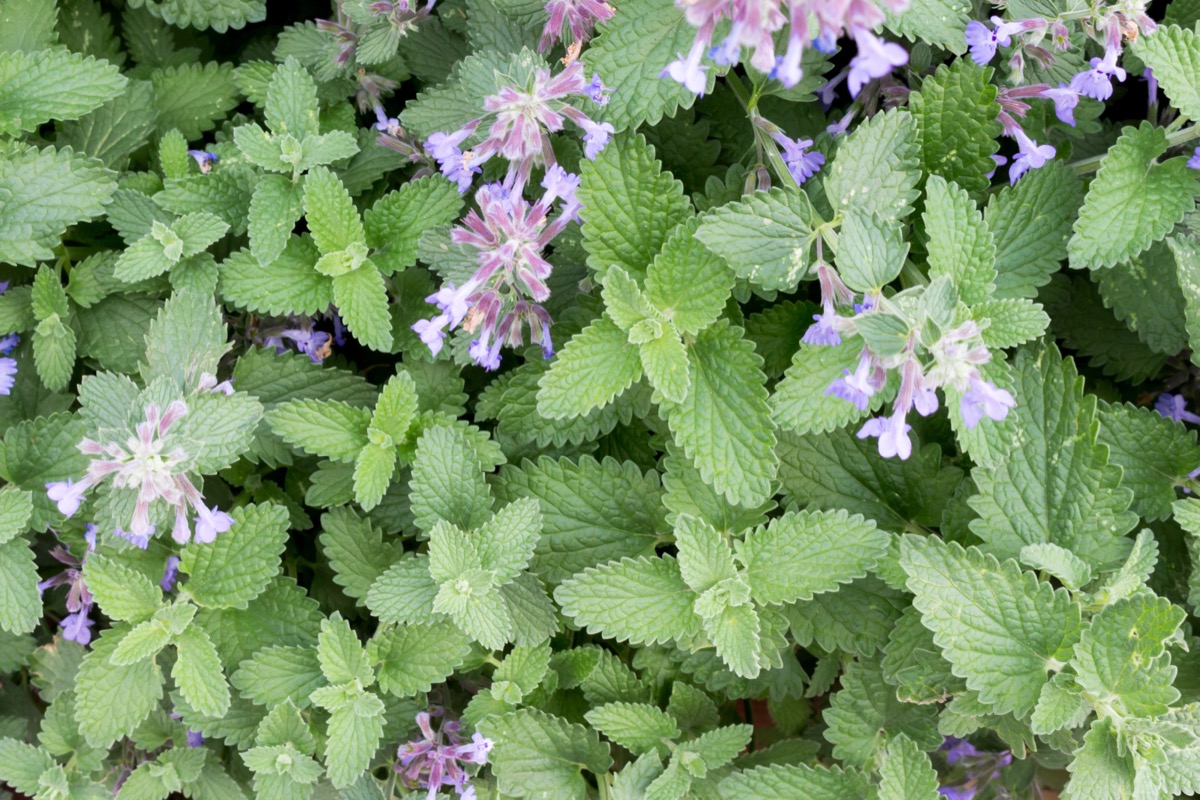
Most often, people plant catnip for its intoxicating effect on cats. However, a recent study also found that the plant contains the bug-repellent compound nepetalactone, making it an effective tool in the fight against certain pests.
“When insects come into contact with the scent of catnip, the nepetalactone compound acts as a natural repellent,” explains Vincent Luca, owner of On Demand Pest Control. “It affects the insects’ sensory receptors, making them less likely to approach or land on surfaces treated with catnip or to venture into areas where catnip is present.”
However, Luca notes that catnip’s effectiveness may vary among different insect species.
READ THIS NEXT: 8 Easy Houseplants That Don’t Need Sunlight.
7. Marigolds
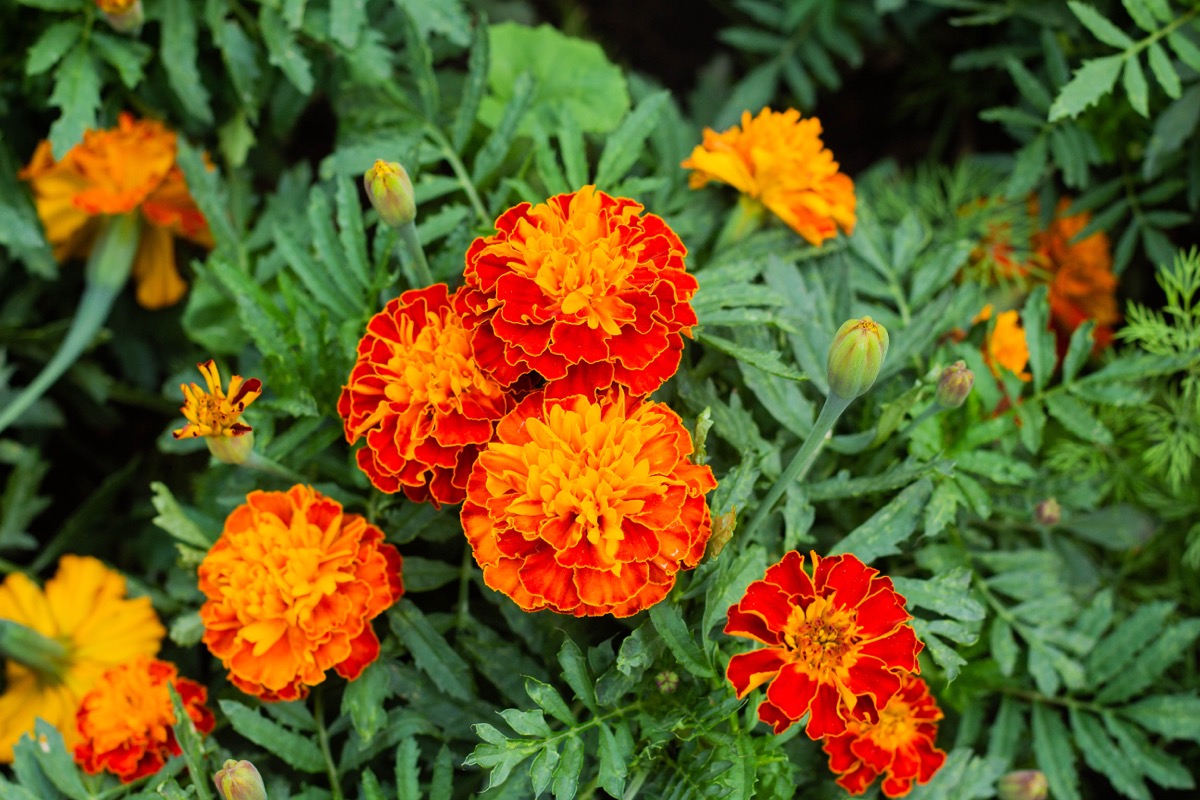
Marigolds, beloved for their saturated orange hue, are also well known to keep bugs away.
“Marigolds are vibrant flowers that not only beautify your indoor space but also repel insects such as aphids, mosquitoes, and flies,” says Adnan. “Marigolds emit a scent that bugs find unpleasant.”
The plant expert says that indoor marigolds will need a sunny location to thrive, as well as well-drained soil. Regular deadheading (removing spent blooms) can help promote continuous blooming and will prolong their bug-repelling capabilities.
8. Lemon Eucalyptus

Lemon eucalyptus is a well-known bug repellent, often used as a DEET-free alternative to harsher chemical repellents against mosquitoes and ticks.
“Eucalyptus plants emit a strong fragrance due to the presence of essential oils, such as citronellal, which mosquitoes and flies find truly unpleasant,” says Ingham. “The scent of eucalyptus masks the attractant odors that these insects use to locate their hosts (us and pets), making it difficult for them to find their targets. Pruning often will help release those helpful essential oils while maintaining its size and shape.”